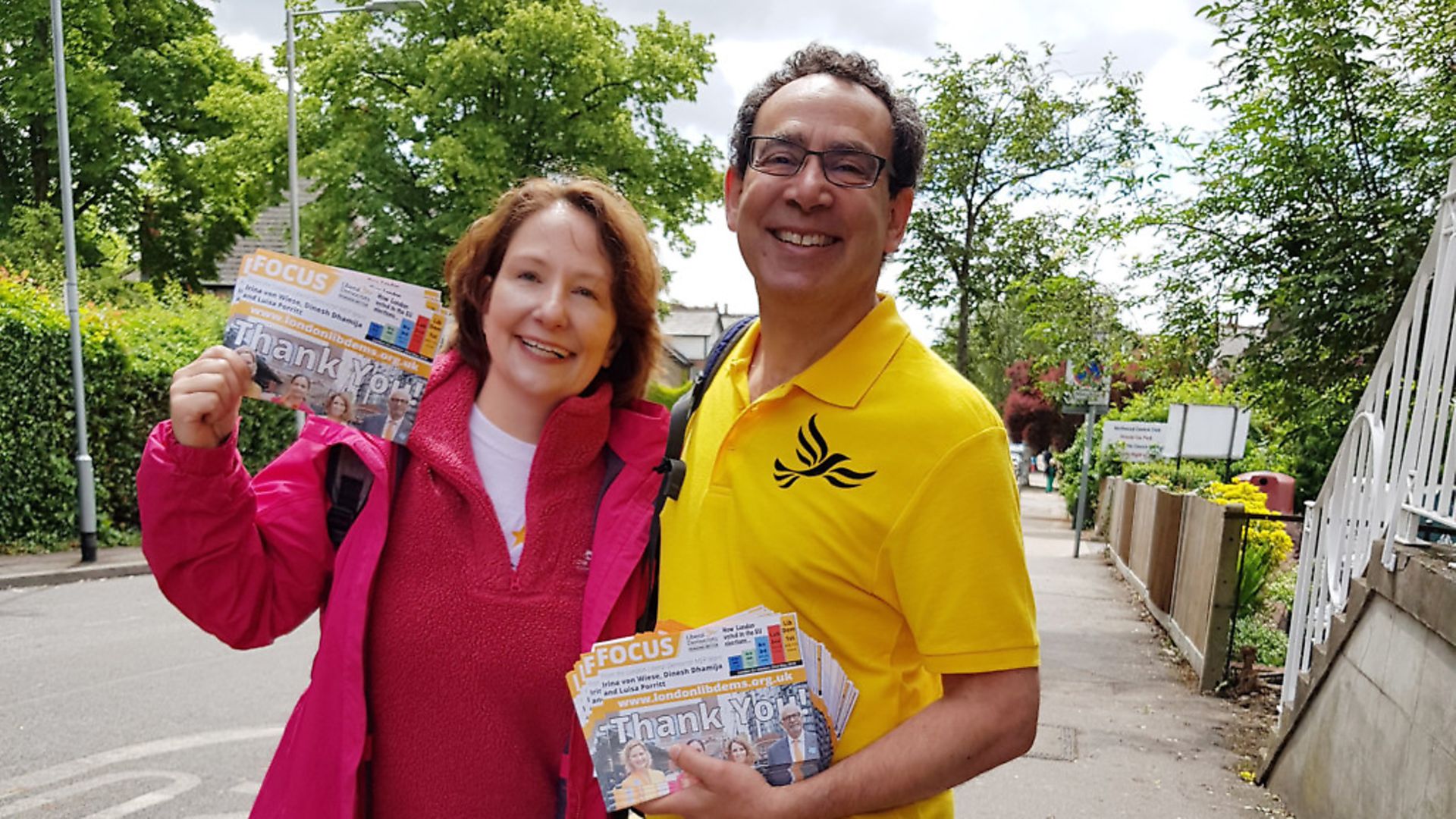
Elizabeth Evenden-Kenyon will take on Boris Johnson in the next general election, here she explains her very personal reasons for doing so.
In March I was elected as the Liberal Democrats prospective parliamentary candidate for Uxbridge and South Ruislip – not exactly the most low-profile constituency to choose as a newbie candidate. It will pit me against the likely prime minister Boris Johnson, who will be defending a majority of more than 5,000. But it’s the constituency in which I’ve spent most of my professional career (as a lecturer at Brunel University), and one that secured my admiration for its vitality and diversity from the very start.
I’ve spent most of my career to date researching the history of how politics and religion are represented in the press, and teaching this subject at undergraduate level. In 2012 I was awarded funding by the European Commission to undertake a research project based across Brunel and Harvard. The project included numerous public outreach initiatives, aimed at encouraging the public to think about the relationships EU states have with one another – historically and in the present day – and how they are represented in the media.
The European Commission facilitated my work in discussing the damage hate speech – particularly but not exclusively Islamophobia, anti-Semitism, and xenophobia – causes individuals and on communities. It provided me with the opportunity to explore these topics with the general public, with schoolchildren, and to put students in Uxbridge in direct contact with scholars at Harvard to discuss their own research and experiences (through online conferencing and discussion).
Then came the EU referendum. As someone now contributing to education and research policy, as well as the proposed future pathways for the European Union, I watched the Leave campaign unfurl with horror.
I also watched the types of manipulative language and images I’d discussed with students for more than a decade be revitalised and modified to dupe people into believing the lies and rash claims being touted by Leave.
I watched Johnson and that bus travel the country, knowing it to be a lie and unachievable. But I also watched the, frankly, anodyne campaign undertaken by Remain, as well as a media (television and online) uninterested in challenging the claims spouted by Leave – the visceral, emotional campaigning that was all too familiar, all too likely to hit home and win.
And it did. Like so many, that was a turning point for me. For the record: I’ve been a lifetime Lib Dem voter – one who campaigned against student fees, and who felt like her heart had been ripped out when yes, my own party, bowed to Tory pressure and allowed student fees to commence.
Damn straight I was angry. For years, family members and friends would end a phone call with “Still mad at Nick Clegg?” “Yup.”
But as angry as I was, I knew it was a concession made in coalition. A devastating one, which – let’s be honest – deserved a whipping at the next election. Yet I also understood the positive impact the Lib Dems made – not least the pupil premium grant.
As time progressed, I still knew that I held firm to the party’s mission, as expressed in its constitution: “The Liberal Democrats exist to build and safeguard a fair, free and open society, in which we seek to balance the fundamental values of liberty, equality and community, and in which no one shall be enslaved by poverty, ignorance or conformity… We believe that people should be involved in running their communities.”
So when Leave’s lies won them the majority of the vote in June 2016, I started receiving inquiries as to whether I might consider standing. By this time my work on hate speech had started to examine its contemporary manifestations in the media; so too had my teaching.
My students voted me Brunel University College and University Lecturer of the year in 2017, and the European Commission bestowed me the honour of representing the humanities as their advocate for the Marie Sk?odowska-Curie actions, which provide grants for researchers. Maybe I did have something to contribute.
Boris Johnson’s reckless language about Muslims maddened me. Then Labour chose a candidate who initially impressed me, Ali Milani. We certainly need more young, diverse people in politics and in many ways I do wish him well. But then he became embroiled in the anti-Semitism row that has dogged his party in recent years, following the emergence of social media messages in which he stereotyped Jews as parsimonious, questioned Israel’s right to exist and called Piers Morgan a Zionist. The messages were written when he was a teenager and he says they no longer reflect his views. Yet his current social media activity, whilst commendably calling out Islamophobia on a regular basis, is silent on anti-Semitism and other forms of hate speech. Full contrition, surely, would see him standing against all forms of hate speech – particularly within his own party – and empower him to champion against it. The pick and choose approach just is not enough.
I love Uxbridge and South Ruislip; always have, always will. And I will always stand against hatred and the normalisation of hate in any form in the media and public fora. Brexit sparked a horrific rise in hate crime (a subject of many of my recent publications); I knew I had to do something.
So today, I am proud to stand as the Lib Dem’s candidate for the area. I wish the candidates for the Conservatives and Labour no ill – the bottom line is that this is no easy task and I’ll admire anyone who is willing to stand to look out for the voiceless, to support the weak, and to communicate with the disenfranchised. So long as it’s rooted in love, not hate. No soundbites, no empty rhetoric, just a determination to make life better for everyone – irrespective of demographic.
The two pillars upon which I am running are: To stop Brexit, which is bad for our economy, our communities, our NHS, and our planet; and to ensure all who live Uxbridge and South Ruislip have a representative who will not tolerate hate speech in any form, and who will do their very best to promote inclusiveness and compassion, and return to politics for the people, not promotion of profit for the few (which, after all, is what Brexit is really about anyway).









